
-
Featured products
 Small & Mini Mature Adult Dog Food
Small & Mini Mature Adult Dog FoodHill's Science Plan Small & Mini Breed Mature Adult Dog Food with Chicken is a complete pet food, specially formulated with ActivBiome+ Multi-Benefit Technology.
Tailored nutrition to support graceful ageing in small dogs. Specially made with a synergistic blend of nutrients for energy & vigor.Shop Now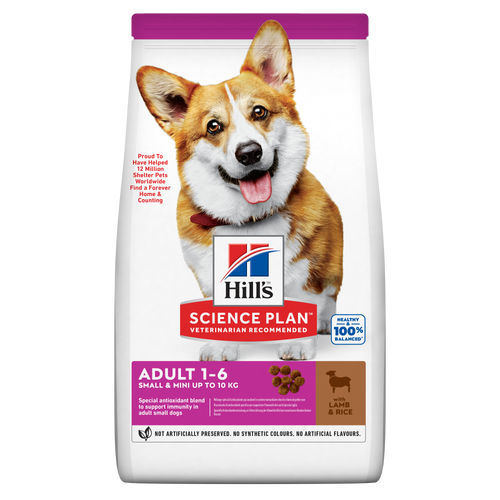 Small & Mini Adult Dog Food
Small & Mini Adult Dog FoodHill's Science Plan Small & Mini Breed Adult Dog Food with Lamb & Rice is a complete pet food, specially formulated with ActivBiome+ Multi-Benefit Technology.
Tailored nutrition for the unique needs of small dogs during the prime of their life.Shop Now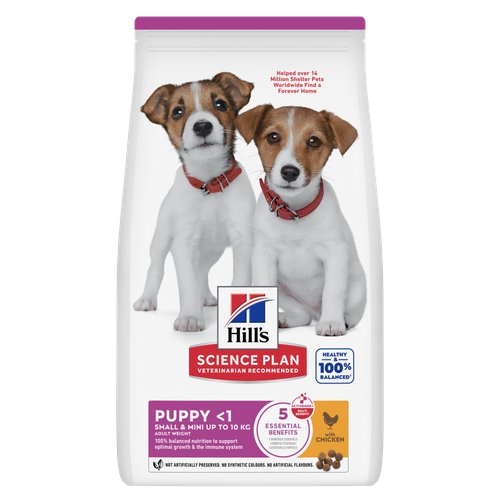 Small & Mini Puppy Food
Small & Mini Puppy FoodHill's Science Plan Puppy Small & Mini Breed Dog Food with Chicken is a complete pet food, specially formulated with ActivBiome+ Multi-Benefit Technology.
100% balanced nutrition to support optimal growth & the immune system.Shop NowFeatured products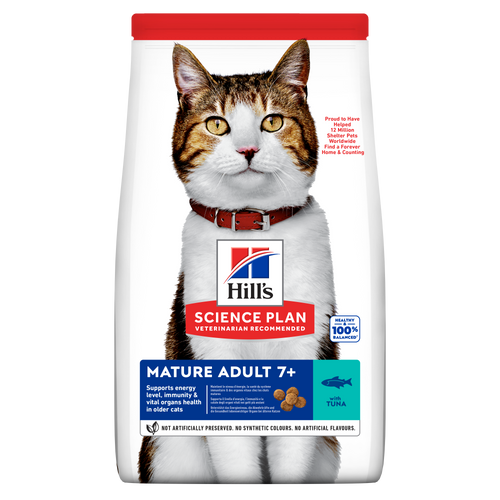 Mature Adult 7+ Cat Food
Mature Adult 7+ Cat FoodHill's Science Plan Mature Adult Cat Food with Salmon is a complete pet food, specially formulated with ActivBiome+ Multi-Benefit Technology.
This food supports graceful aging in cats, providing a synergistic ingredient blend to help support energy & activity levels.Shop Now Oral Care Adult Cat Food
Oral Care Adult Cat FoodHill's Science Plan Oral Care Adult Cat Food with Chicken contains clinically proven kibble technology to reduce plaque & tartar build up.
Shop Now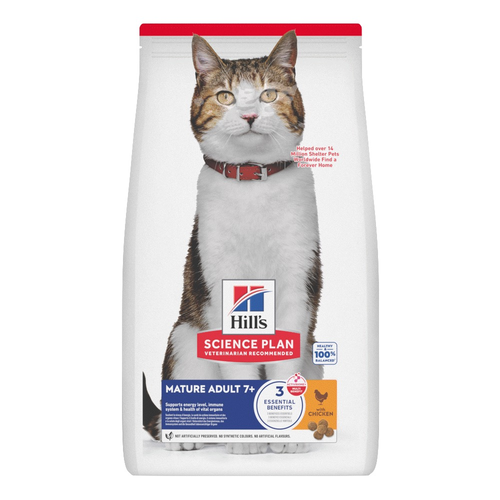 Mature Adult Cat Food
Mature Adult Cat FoodHill's Science Plan Mature Adult Cat Food with Chicken is a complete pet food, specially formulated with ActivBiome+ Multi-Benefit Technology.
This food supports graceful aging in cats, providing a synergistic ingredient blend to help support energy & activity levels.Shop Now -
Dog
- Dog Tips & Articles
-
Health Category
- Weight
- Food & Environmental Sensitivities
- Urinary
- Digestive
- Joint
- Kidney
Featured articles Proteins
ProteinsTo make a protein, amino acids are linked together in a long chain. The chain is then bundled into to a three-dimensional structure, like a tangled ball of yarn.
Read More The Right Diet For Your Pet
The Right Diet For Your PetIn people, the right diet is very important. If you are eating the wrong way for your metabolism, activity level, age and lifestyle you could end up with health issues.
Read More The Incredible Science Behind Your Pet's Microbiome
The Incredible Science Behind Your Pet's MicrobiomeLearn what your pet's microbiome is, how it contributes to your pet's gut and overall health, and why nutrition is important in maintaining healthy microbiomes.
Read More -


Your cat may not be an energetic kitten anymore, but old age shouldn’t keep your senior cat from getting the most out of the years ahead. Generally cats over 11 years of age are classified as Senior cats. If your cat falls within this age group it is important to be aware of certain physical and mental changes your cat will undergo. The following list contains common symptoms and conditions often associated with senior cats that can potentially impact their quality of life:
Generally cats over 11 years of age are classified as Senior cats. If your cat falls within this age group it is important to be aware of certain physical and mental changes your cat will undergo. The following list contains common symptoms and conditions often associated with senior cats that can potentially impact their quality of life:
- W


Tasty Tips
- Decreased sense of smell and hearing
- Sensitivity to light
- Heart or circulatory problems
- Less agility
- Digestion difficulties
- Brittle nails
- Grooming difficulties in hard-to-reach areas
- Loose skin/Loss of muscle mass
- Behaviour changes, such as increased accidents outside the litter box, irritability, decreased human interaction, confusion and less playfulness
- Fluctuating sleep patterns
- Reduced digestive function
- Reduced immune response


One of our staff authors prepared this article for you
Related products

Hill's Science Plan Mature Adult Cat Food with Salmon is a complete pet food, specially formulated with ActivBiome+ Multi-Benefit Technology.
This food supports graceful aging in cats, providing a synergistic ingredient blend to help support energy & activity levels.

Hill's Science Plan Mature Adult Cat Food with Chicken is a complete pet food, specially formulated with ActivBiome+ Multi-Benefit Technology.
This food supports graceful aging in cats, providing a synergistic ingredient blend to help support energy & activity levels.
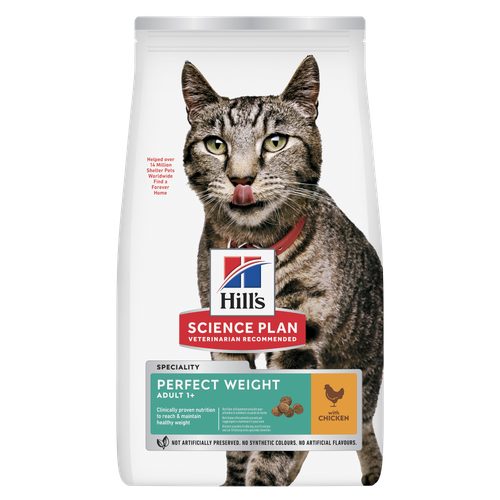
Hill's Science Plan Perfect Weight Adult Cat Food with Chicken is clinically proven nutrition to reach & maintain healthy weight.

Hill's Science Plan Oral Care Adult Cat Food with Chicken contains clinically proven kibble technology to reduce plaque & tartar build up.
Related articles

Find the right Hill

HillsPet Nutrition provides information on proper nutrition, fitness and special needs in keeping your cat healthy and happy.

Good nutrition is about the right balance of nutrients. Learn more about health issues when feeding a cat food that has an improper nutritional balance from your friends at Hills Pet Nutrition.

When learning how to train your cat, you'll start with very basic first steps that both reward good behavior and discourage the bad.

Put your cat on a diet without them knowing
Our low calorie formula helps you control your cat's weight. It's packed with high-quality protein for building lean muscles, and made with purposeful ingredients for a flavorful, nutritious meal. Clinically proven antioxidants, Vitamin C+E, help promote a healthy immune system.
Put your cat on a diet without them knowing
Our low calorie formula helps you control your cat's weight. It's packed with high-quality protein for building lean muscles, and made with purposeful ingredients for a flavorful, nutritious meal. Clinically proven antioxidants, Vitamin C+E, help promote a healthy immune system.

